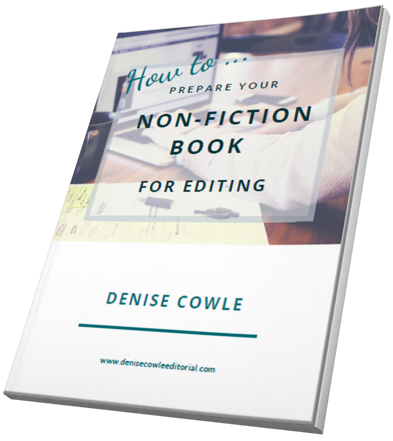We can all benefit from feedback on our writing. When you’re creating a lot of content for your business – whether it’s blog posts, web pages, proposals or white papers – it’s tempting to write it and get it out there.
But getting someone else to cast a critical eye over your copy is a really good idea. Why?
- you’re far too close to it to see your own mistakes
- your brain will skim over and read what it thinks you’ve written, not what’s there
- you may not have quite the right angle you were hoping for
- your point may not be clear
- it might benefit from restructuring
you may have overlooked certain elements – links to other pages or sites, or a call to action, for example.
Related content: Should you work with an editor?
If you’re lucky, you’ll have one or two friends or colleagues who are word experts willing to give you some honest feedback.
But you should use their skills wisely – you don’t want to aggravate them and make it less likely that they’ll be willing to help you in the future.
Here are some tips for looking after your word expert.
1. Never sneak up on your expert
Always give them as much notice as possible. Respect their time – they’re already busy doing their paid job. Just because you want to publish or print in the next hour and aren’t confident about your spelling or grammar doesn’t mean they’ll be able to drop everything for you.
So if you think you’re going to need some help, plan ahead. Let them know that you’re working on a piece of writing and you’d feel more confident about it if they could review it for you. No matter how many times they’ve done this for you before, never assume that they’ll be available on this occasion. Assuming that they’ll always be there when you need them risks creating resentment – and they may be less willing to help you again.
2. Be specific
Your word expert may be really great at the word stuff, but not so good at telepathy. They won’t know what sort of feedback you want unless you tell them.
- Would you like them to check your spelling, grammar and punctuation?
- Or are you more concerned that your message isn’t clear enough?
- Have you used too many words and got a bit woolly?
- Do you think you’re too vague about a particular point?
Tell them exactly what you’d like their help with. Then they can use their skills to identify the problem areas and help you improve on them.
3. Prepare the way
Do some of the groundwork yourself. Read through your copy for obvious typos and spelling mistakes. They’re easy to make when you’re in the flow of writing, but many are equally easy to pick up yourself with a basic spell checker.
Handing over writing littered with basic errors your spell checker would flag up creates more work for your word expert and makes it harder to spot issues that spell checkers don’t catch.
If you’re asking friends or colleagues to check your work for free, make it as straightforward for them as possible.
They’re doing you a favour, remember?
Related content: How to proofread your own writing: ten tips
4. Be selective
Don’t expect someone to review everything you write. They will soon tire of it, especially if they are busy themselves. Lots of offices have an ‘unofficial proofreader’ – someone who is good with words and has a sharp eye for picking up mistakes. But if you’re not careful, they may start to resent your assumption that they will always be available and willing to correct your errors.
Think about how important this particular piece of writing is.
Is it an internal email that will only be seen by your team members? Maybe you can get away with the odd typo and clunky sentence structure.
Is it copy for your company’s website? You want it to be as good as possible if it’s public-facing, but mistakes in web copy are usually straightforward to rectify. Perhaps it’s more important to get it finished and uploaded than wait until your word expert has time to review what you’ve done.
Is it an annual report that’s being printed and sent to thousands of shareholders? Then you definitely want it to be reviewed carefully before handing over the files to the printer. In this case I’d go as far as to suggest that an important piece of writing like this should be outsourced to a professional editor or proofreader. Your helpful colleague may have great typo-spotting skills, but there may well be other issues that would only be picked up by a professional.
5. Learn from the master
Don’t just gratefully accept all the changes your word expert makes. Take time to look at the corrections and suggestions they’ve made. Is there a pattern emerging? Make a note of your frequently misspelled words or misused phrases. Notice when they remove capitals, or change commas to dashes or semicolons. You can even create your own style sheet to refer to. If you don’t understand what they’ve done or why they’ve done it, ask.
Asking your expert to check writing that has the same mistakes in it time and again may even suggest to them that you’re not willing to do any of the work to improve your skills but are expecting them to bear that load for you. And remember – it’s not even their job!
Don’t risk annoying your expert in this way!
Related content: Style sheets for writing and editing
6. Show appreciation
You may not be paying them, but show your word expert that you are grateful for what they do.
Offer to do something for them in return – you’re sure to have some skills that you can share too. Or hand-write them a note, or buy them a coffee or a little treat now and then– that’s always appreciated, and it lets them know that you don’t take their efforts for granted.
7. Know when to call in a professional
Lots of people write well enough for what’s required. And there’s no doubt that I could make changes to punctuation, reorder sentences and tighten and polish most texts, but doing that for a single blog post may not be the best way for you to spend your money.
It makes more sense to bring in a copy-editor for a more substantial piece of content that you hope will bring a significant return to your business – perhaps key website pages, an ebook you plan to use for lead generation, a series of blog posts or an email sequence.
If you plan on hiring a copyeditor or proofreader, here are some resources
Do I need a proofreader or a copyeditor?






